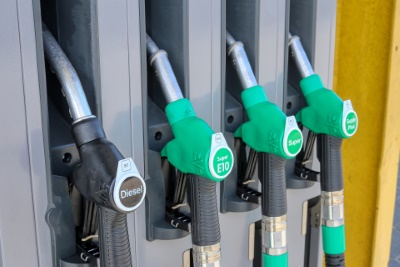Trade groups call for fuel duty action in Spring Budget
 The Road Haulage Association (RHA) welcomed press reports in late January suggesting that the chancellor Jeremy Hunt may be planning to extend the current five pence per litre fuel duty cut for a further year in his March Spring Budget, should the state of public finances allow it.
The Road Haulage Association (RHA) welcomed press reports in late January suggesting that the chancellor Jeremy Hunt may be planning to extend the current five pence per litre fuel duty cut for a further year in his March Spring Budget, should the state of public finances allow it.
The cut, which was introduced by Rishi Sunak last year amidst soaring pump prices, was originally slated to end in March. Any extension of the policy would come as a relief to hauliers following suggestions in late 2022 that fuel duty could increase by 23 per cent this year, based on Office for Budget Responsibility assumptions. While Mr Hunt insisted at the time that such a rise was “not government policy”, he added that no decision had been made.
On the possibility of a further freeze, the RHA said: “It’s what we, on behalf of our members, have campaigned for to avoid extra unnecessary costs being placed on hard-working coach and lorry operators. We have said to government that continuing the freeze would also help control inflation. We are also asking ministers to announce a 15 pence per litre fuel duty rebate for commercial vehicles to boost the economy.”
The shadow chancellor, Labour’s Rachel Reeves, has also called for the government to rule out a fuel duty rise to “prevent yet another shock to our economy”.
Meanwhile, Logistics UK has been advocating the introduction of a dynamic mechanism that would reduce fuel duty while maintaining revenue levels through VAT and other sources, “to ensure government keeps control of the public purse and, at the same time, to enable businesses to plan for the future more efficiently.”
The organisation had previously estimated that the postulated 23 per cent rise would “equate to an additional £4,850 for the cost of running a 44t truck.”
Logistics UK has also warned that fuel duty increases, as well as changes to levels of government support on energy, would have an adverse impact on the sector, potentially limiting its ability to invest in decarbonisation.
Kate Jennings, the organisation’s policy director, said: “Increasing the costs of energy and fuel at this point would have a detrimental effect on the logistics industry’s ability to power the nation’s recovery after the pandemic, as well as enabling our members to prepare for a greener future. The current energy bill scheme, capping the unit cost of gas and electricity for all businesses, provided much-needed certainty for our members, particularly SMEs who make up 99 per cent of the logistics sector.
“However, the significantly lower discounts to be applied to eligible businesses from the new scheme from 1 April 2023 will be detrimental to further growth and investment for the future, and could even result in business closures… Logistics UK is urging government to use its Spring Budget to put forward a package of support that ensures our members can keep the lights on, operations moving and UK businesses trading, while continuing to invest in a greener future.”













